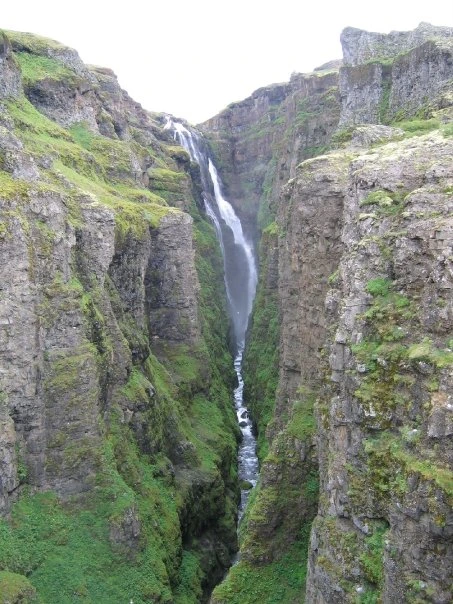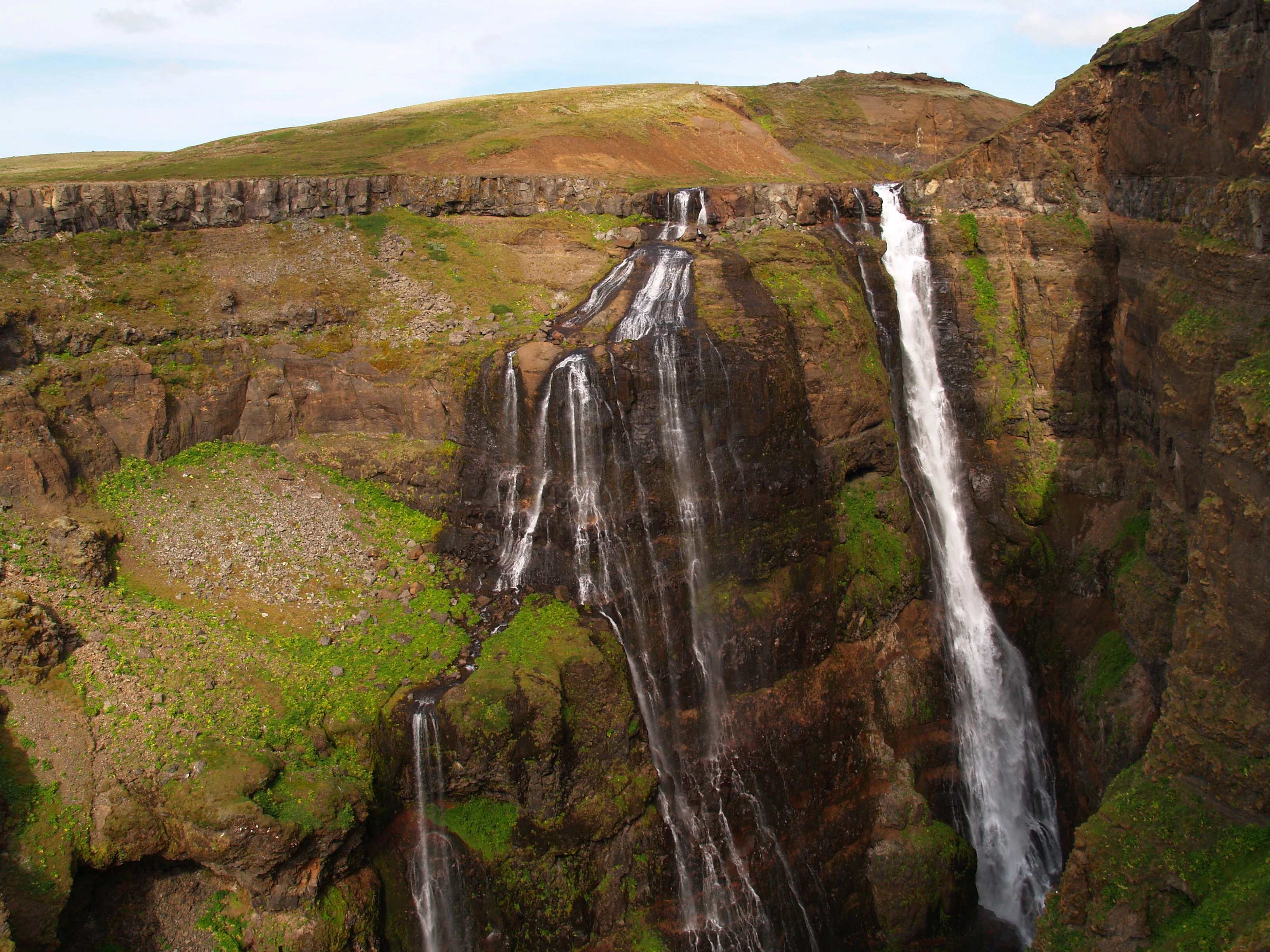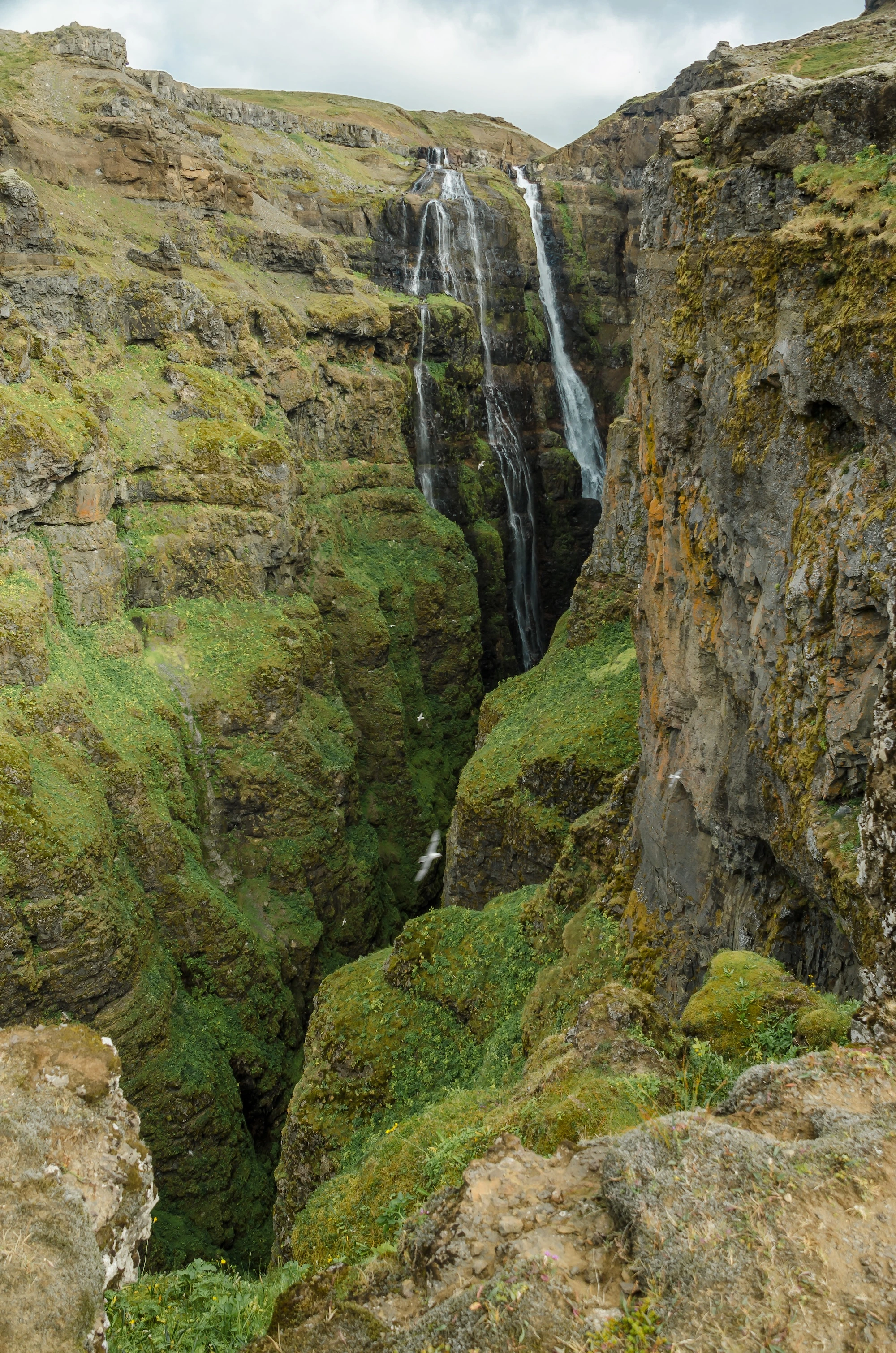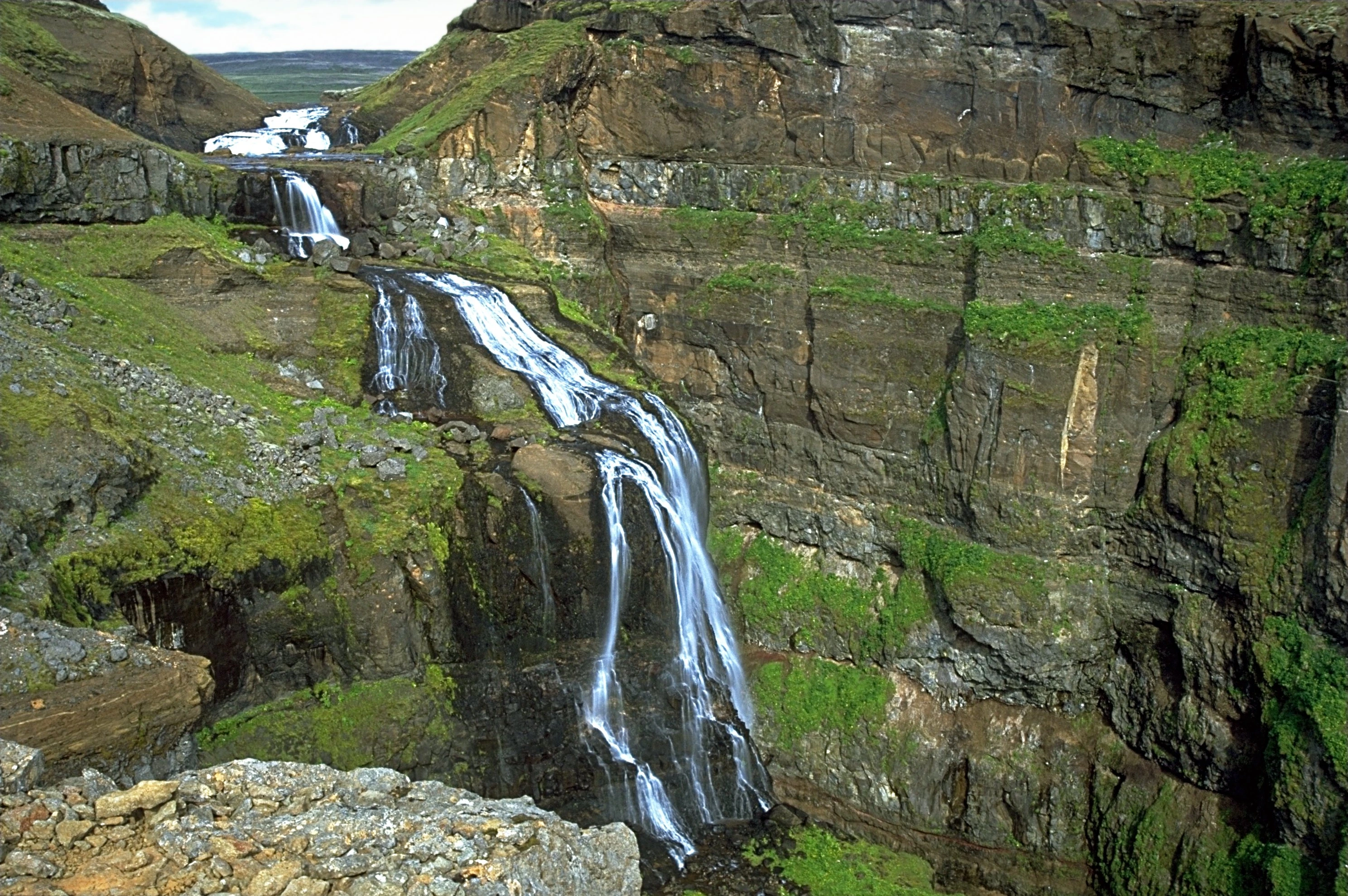




Glymur Waterfall
Glymur is a stunning waterfall located in Iceland, known for being the country's second-tallest waterfall. It stands at around 198 meters (650 feet) high, making it a breathtaking natural wonder. Glymur is situated in the Hvalfjörður fjord, about an hour's drive north of Reykjavik. To reach Glymur, visitors must embark on a scenic hike. The trail offers beautiful views and passes through lush landscapes, including a small cave and a river crossing that adds a bit of adventure to the journey. The hike is moderately challenging and takes about 3-4 hours round trip. Once at Glymur, the sight of the cascading water is truly impressive. The waterfall flows down a narrow canyon, surrounded by steep cliffs and vibrant greenery. It's a perfect spot for nature lovers and photographers seeking dramatic landscapes. While visiting Glymur, it's important to wear sturdy shoes and be prepared for changing weather conditions. The path can be slippery, so caution is advised. Despite the effort needed to reach it, witnessing Glymur's beauty makes for an unforgettable experience in Iceland's remarkable wilderness.
Tuesday: Open 24 hours
Wednesday: Open 24 hours
Thursday: Open 24 hours
Friday: Open 24 hours
Saturday: Open 24 hours
Sunday: Open 24 hours
The Area
Top ways to experience
Glymur Waterfall
What other travelers are saying about
Glymur Waterfall
Stunning hike with incredible views along the route! Up to the top viewpoint and back it took ~3 hours, and had several steep inclines that were made significantly easier by having proper shoes. Don’t forget to fill up your water bottle at the top with the freshest water in Iceland 🤍
Not the easiest hike, but definitely worth going! It takes around 1.5h one way to get to the highest viewpoint and another 30 minutes to get all the way to the top! There’s also a small cave, and a little wooden beam that you have to cross the river with at the beginning of the hike. There’s also a free parking.
A stunning hike, gorgeous views, impressive waterfall, and easier than many seem to suggest. First river crossing has a log and a cable, so fairly straightforward. Second one you need to walk through the river (it is shallow and pretty slow) so ideally take your shoes off. At its deepest it reached miss shin for me. You can also decide to go up to the summit and go back down the same way, avoiding the second river crossing. Went counter-clockwise. Strongly recommended.
Nearby attractions to see
Frequently asked questions
What is Glymur?
Glymur is the second highest waterfall in Iceland, located in the Hvalfjörður fjord. It stands at a height of 198 meters and offers a stunning hiking experience with breathtaking views.
How can I reach Glymur waterfall?
To reach Glymur, you need to drive to the end of Hvalfjörður fjord, which is about an hour from Reykjavik. From there, it's a hike of approximately 3.5 kilometers each way that includes crossing a river and navigating some steep terrain.
What should I bring for the hike to Glymur?
For the Glymur hike, it is recommended to bring sturdy hiking boots, waterproof clothing, and possibly a walking stick for stability. Snacks and water are also essential as there are no facilities along the trail.
Is the hike to Glymur suitable for beginners?
The hike to Glymur is considered moderate to challenging, involving river crossings and steep sections. While it's not recommended for complete beginners, those with some hiking experience should find it manageable.
When is the best time to visit Glymur waterfall?
The best time to visit Glymur is during late spring through early autumn (May to September) when the weather conditions are more favorable and the trail is safer without snow or ice.








